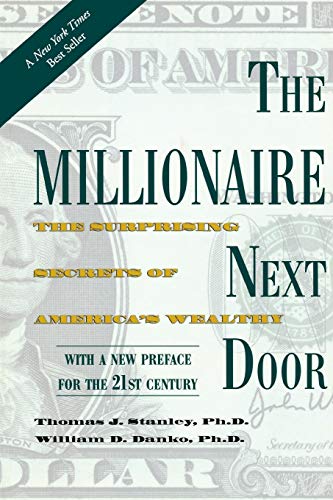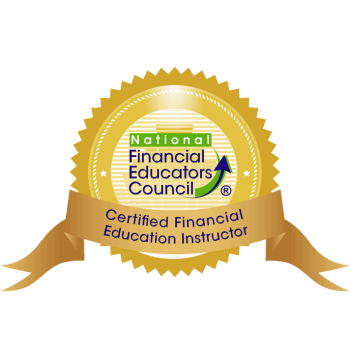Best Books on Investing for Beginners
This post may contain affiliate links. As an Amazon Associate, I earn from qualifying purchases. Please read my disclosure policy for more info.
Investing can be a daunting task, especially for new investors. With so many options and strategies to choose from, it’s essential to have a solid foundation before diving in.
One of the best ways to gain the knowledge to reach your financial goals is by reading books on investing for beginners.
These books offer a comprehensive introduction to the investment world, covering everything from basic terminology to more advanced strategies. They can help you understand the various investment options, how to create a diversified portfolio, and how to manage risk.
When choosing a book on investing for beginners, it’s important to consider the author’s credentials and experience. Look for books written by experts in the field with a proven track record of success.
Additionally, to find the best investment books, consider their readability and accessibility. You want a book that is easy to understand and engaging to read, so you can absorb the information and apply it to your own investing journey.
Whether you’re looking to start investing for the first time or want to expand your knowledge, here’s a list of the best investing books to get started with.
Stress less & save more!
This FREE budget guide will help you create a budget that works for you!
Best Books on Investing for Beginners
The Psychology of Money
If you’re looking for a book on investing that’s easy to understand and full of practical advice, The Psychology of Money by Morgan Housel is a great choice.
It’s an insightful book that explores the human emotions and behaviors surrounding money and investments.
Morgan Housel delves into the psychological aspects that influence our financial decisions, highlighting how our beliefs, biases, and experiences shape our monetary choices and long-term financial success.
The Psychology of Money is an engaging and thought-provoking book that explores the complex relationship between humans and money.
Morgan Housel draws on his experience as a financial analyst to provide readers with practical advice on building wealth, avoiding common financial mistakes, and finding happiness in a world obsessed with money.
Housel uses real-life stories to illustrate key concepts, making the book relatable and easy to understand.
While some readers may find the stories in the book too simplistic, others will appreciate the straightforward approach.
The Psychology of Money is not a comprehensive guide to investing but a collection of insights and observations that will help you think differently about money and its role in your life.
Housel emphasizes the importance of patience, humility, and a long-term perspective when it comes to investing.
He also warns against common pitfalls like greed, overconfidence, and short-term thinking.
Whether you’re a beginner or an experienced investor, you’re sure to learn something new from this book.

Pros
- Uses stories and real-life examples to illustrate his points
- Focuses on psychological factors that impact finances
- Accessible with easy-to-understand concepts
- Provides valuable insights into a wide range of financial situations

Cons
- Doesn’t address in-depth financial strategies or technical investment advice
- Doesn’t offer a step-by-step plan for investing
- Can feel repetitive
The Intelligent Investor: The Definitive Book on Value Investing
If you’re looking for a comprehensive guide to value investing, then The Intelligent Investor is the book for you.
With over 600 pages of expert advice and insights, this book is a must-have for any beginner investor.
Benjamin Graham, the father of value investing, wrote this classic book on investing and personal finance.
It’s an influential guide that provides an in-depth look at the principles of value investing, offering practical advice and strategies to help investors make well-informed decisions and achieve long-term financial success.
This book provides a solid foundation for anyone looking to invest in the stock market.
It covers everything from the basics of investing to advanced strategies for picking undervalued stocks.
Graham’s writing style can be a bit dry at times, but his insights into the market are invaluable.
One of the best things about The Intelligent Investor is that it provides a comprehensive approach to investing.
Graham covers everything from stock market investing basics to advanced strategies for picking undervalued stocks.
This makes it a great book for beginners who are just starting out, as well as for experienced investors who are looking to refine their skills.
Another great feature of The Intelligent Investor is that it offers insights into the stock market’s history.
Graham provides a detailed analysis of market trends and cycles, which can help investors make more informed decisions about when to buy and sell stocks.
This makes the book a valuable resource for anyone looking to gain a deeper understanding of financial markets.
Overall, The Intelligent Investor is a must-read for anyone looking to invest in the stock market.
While the book can sometimes be dense and difficult to read, the insights it provides are invaluable.

Pros
- Examines various investment strategies
- Provides actionable tips and guidelines for investing
- Outlines principles of value investing

Cons
- Some of the examples used in the book are outdated
- Technical language and complex concepts make it more difficult to read
- Might be overwhelming for some beginning investors
The Simple Path to Wealth
If you’re looking for an uncomplicated guide to index fund investing, then The Simple Path to Wealth by JL Collins is a great option.
This book promotes a
The Simple Path to Wealth is easy to read and understand, making it great for beginners.
The author’s approach is
It is geared toward U.S. investors, so some advice may not apply to investors in other countries.
Also, the book doesn’t cover more advanced investment strategies. It focuses solely on index investing, so it may not be suitable for experienced investors or those interested in a variety of investment options.

Pros
- Easy to read and understand
- S
imple and straightforward approach - Includes practical advice and tips

Cons
- Geared toward U.S. investors
- Doesn’t cover more advanced investment strategies
- Focuses solely on index investing
Principles: Life and Work
Principles by Ray Dalio is one of the best stock market books out there.
It’s an insightful and thought-provoking book that delves into the life and work principles of the founder of Bridgewater Associates, one of the world’s largest hedge funds.
Part memoir, part business guide, this book offers a unique perspective on the tools and strategies that have contributed to Dalio’s immense success.
One of the most remarkable aspects of Principles is the breadth and depth of wisdom it imparts.
Dalio shares valuable insights from his personal journey, touching on topics like decision-making, learning from failure, and creating a culture of radical transparency.
In the second part of the book, he dives into the tools and methodologies he used to build a successful investment firm, providing practical advice that can be applied across various fields.
Dalio’s writing style is clear and engaging, making complex concepts accessible to a wide audience.
The book is particularly beneficial for those new to investing, as it simplifies important concepts and provides actionable advice.
Additionally, Principles emphasizes the importance of personal and professional growth, making it a valuable resource for anyone looking to improve their lives.
However, there are a few drawbacks to consider.
The book can be repetitive at times, with certain points reiterated throughout the text.
Also, while it is beginner-friendly, the density of information can be overwhelming for some readers, which may require the reader to take breaks to digest the content fully.
Overall, Principles by Ray Dalio is an invaluable resource for those looking to gain insights into a successful investor’s life and work principles.
With its engaging storytelling, practical tools, and universal lessons, this book is a treasure trove of wisdom for readers interested in personal and professional growth.

Pros
- Provides helpful insights
- Uses accessible language and concepts
- Insights can be applied to both personal and professional growth.

Cons
- Amount of information can be overwhelming
- Focuses more on overarching principles than specific strategies
- Focuses more on the author’s personal experiences and principles than on technical investment advice
The Book on Rental Property Investing
The Book on Rental Property Investing by Brandon Turner is a must-read for anyone considering dipping their toes into the world of rental property investing.
With a casual and friendly writing style, Turner dives into the nitty-gritty details of buying, managing, and profiting from rental properties, making it an invaluable resource for beginners and seasoned investors alike.
One of the book’s standout features is its comprehensive coverage of various aspects of rental property investing.
Turner walks you through the entire process, from identifying potential investment properties and understanding financing options to dealing with tenants and handling property management.
His real-world examples and anecdotes add a relatable touch, making even the most complex concepts easy to digest.
Another strength of the book lies in its practical advice.
Turner shares actionable tips and strategies that readers can implement right away, empowering them to make informed decisions and avoid common pitfalls.
His emphasis on the importance of having a clear investment plan and being adaptable in the face of changing market conditions is particularly valuable.
However, it’s essential to note that The Book on Rental Property Investing focuses primarily on single-family homes and small multi-unit properties.
If you’re interested in commercial real estate or other investment property types, you may need to supplement your reading with additional resources.
Overall, The Book on Rental Property Investing is a fantastic guide for anyone interested in building wealth through rental property investments.
With its comprehensive content, practical advice, and engaging writing style, this book is sure to help you unleash your inner landlord and set you on the path to financial success.

Pros
- Offers a thorough overview of various aspects of rental property investing
- Provides actionable tips and strategies that readers can apply right away
- Casual and friendly writing style
- Provides valuable guidance for long-term success

Cons
- Focuses on single-family homes and small multi-unit properties, not commercial real estate
- Advice may not apply to all regions or markets
- Doesn’t offer a detailed, step-by-step roadmap for rental property investing
The Millionaire Next Door
If you’re looking for a practical guide to building wealth, The Millionaire Next Door is definitely worth reading.
The authors provide plenty of real-world examples and practical advice that anyone can follow.
However, you should keep in mind that the book is focused mainly on American millionaires, so some of the advice may not be applicable to readers in other countries.
While not strictly an investment book, The Millionaire Next Door is a great resource for anyone who wants to learn how to build wealth and achieve financial independence.
The book provides practical advice and insights based on real-world experience and is easy to read and understand.
If you’re serious about building wealth, this book is definitely worth checking out.

Pros
- Gives practical advice on how to build wealth
- Advice based on extensive research and real-world experience
- Easy to read and understand

Cons
- Originally written in 1996, so may be outdated
- Focuses on American millionaires, so may not be applicable to everyone
- Can be a bit dry and boring
The Little Book of Common Sense Investing
Want a straightforward guide to investing in the stock market?
The Little Book of Common Sense Investing is a great place to start.
This book, written by John C. Bogle, the founder of Vanguard Group, provides a solid foundation for beginners looking to invest in the stock market.
Bogle’s emphasis on low-cost index funds and long-term investing is a refreshing change from the get-rich-quick mentality often associated with investing.
The book provides clear and concise explanations of investing concepts, making it easy for beginners to understand.
Bogle’s practical advice for long-term investing is also a valuable resource for those looking to build a solid investment portfolio.
One potential downside of the book is that some readers may find it repetitive.
Bogle’s message is
Additionally, the book doesn’t cover more advanced investing strategies, so readers looking for more in-depth information may need to look elsewhere.
Overall, The Little Book of Common Sense Investing is a must-read for anyone looking to invest in the stock market.

Pros
- Clear and concise explanations of investing concepts
- Emphasis on low-cost index funds
- Practical advice for long-term investing

Cons
- Some readers may find the book repetitive
- Not a comprehensive guide to all aspects of investing
- It doesn’t cover more advanced investing strategies
Rich Dad, Poor Dad
Rich Dad, Poor Dad by Robert Kiyosaki is a groundbreaking personal finance book that has transformed the way millions of people think about money and wealth creation.
Through a captivating narrative, Kiyosaki shares the contrasting financial lessons he learned from his “rich dad” (his best friend’s father) and his “poor dad” (his biological father), offering readers a new perspective on money management and financial success.
One of the most compelling aspects of Rich Dad Poor Dad is its ability to challenge conventional thinking about money and financial education.
Kiyosaki emphasizes the importance of financial literacy, entrepreneurship, and investing in assets rather than solely relying on earned income.
This paradigm shift has inspired countless readers to rethink their financial strategies and pursue the path to financial freedom.
Kiyosaki’s writing style is engaging and relatable, making complex financial concepts accessible to a broad audience.
The book is particularly beneficial for beginners or those looking to improve their financial situations, as it offers practical advice and actionable steps to build wealth.
However, there are a few aspects of the book that may not resonate with all readers.
Some may find the book’s emphasis on entrepreneurship and investing in real estate as the primary means to build wealth limiting, as there are various paths to financial success.
Also, the book lacks in-depth technical information on specific investment strategies, which may leave some readers seeking more detailed guidance.
Rich Dad Poor Dad doesn’t offer a step-by-step guide to investing, but it is a highly influential personal finance book that has inspired millions of people to take control of their financial futures.
Through its engaging storytelling, unconventional wisdom, and emphasis on financial literacy, this book serves as an eye-opening introduction to the world of personal finance and wealth creation.

Pros
- Challenges conventional thinking
- Makes complex financial concepts accessible
- Offers practical tips and steps to help readers build wealth
- Highlights the importance of financial literacy

Cons
- Primarily focuses on entrepreneurship and real estate
- Doesn’t provide in-depth information on specific investment strategies
- Relies heavily on Kiyosaki’s personal experiences
Buying Guide
When it comes to investing, choosing the right book can make all the difference.
With so many options available, it can be overwhelming to make a decision. Here are some key features to look for when selecting the best book on investing for beginners:
Author’s Expertise
The author’s expertise is one of the most important things to consider when selecting an investing book. Look for an author who has a strong background in finance and experience in the field. This will ensure that the information provided is accurate and trustworthy.
Clarity and Simplicity
Investing can be a complex topic, but the best books on investing for beginners should be written in a clear and
Relevant to Your Goals
There are many different types of investments, and it’s important to choose a book that aligns with your goals. If you’re interested in long-term investing, look for a book focusing on varying your asset allocation and building a diversified portfolio. If you’re interested in day trading, look for a book that provides strategies for short-term trading.
Table of Contents
Before making a final decision, take a look at the table of contents. This will give you an idea of what topics are covered and how the book is structured. Look for a book that covers the investment philosophy you’re hoping to emulate.
Reviews and Recommendations
Finally, take a look at reviews and recommendations from other readers. This can provide valuable insight into the quality and usefulness of the book. Look for books with positive reviews and recommendations from trusted sources.
Final Thoughts
Reading a variety of books on investing is a great way to gain an understanding of the different investment options. Learning how the stock market works or what the process of owning rental properties looks like will help you make more informed decisions and become a better investor.
The list above contains some of my favorite books to help you get started with investing and improve your overall knowledge and skills when it comes to personal finance and your financial life.
Want to work together?
I would love to help you gain clarity and confidence with your money! If you’re ready to stress less, save more, and enjoy your money, click below to learn more about financial coaching.














